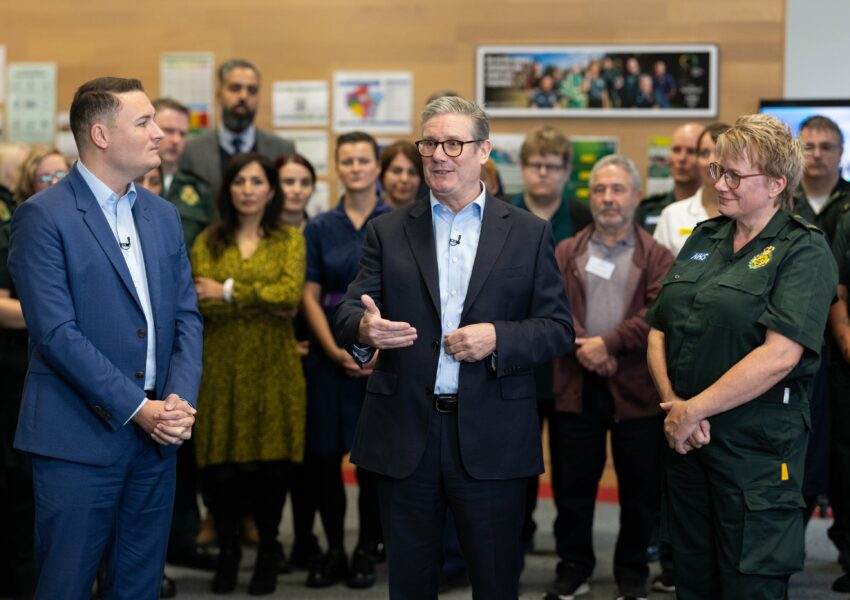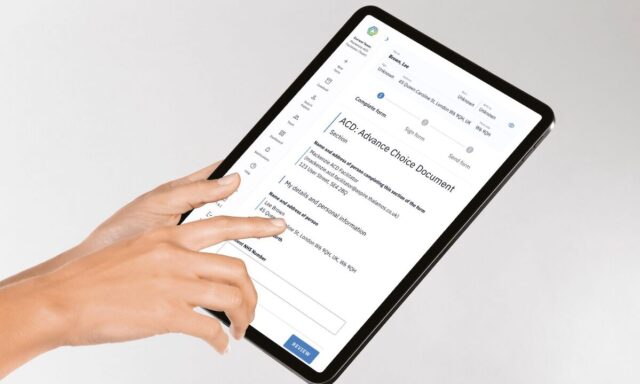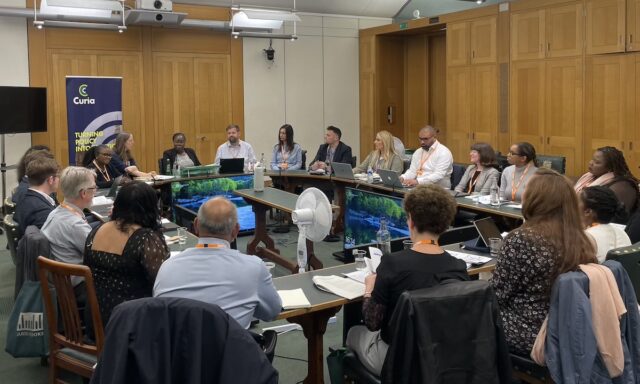
The government has launched its Change NHS consultation, which is designed to provide the input needed to modernise the NHS and drive the digital transformation of key services.
As a business focused on digitising the way patients are treated under the Mental Health Act (MHA), Thalamos believes this consultation could help unlock the potential of technology to improve care for individuals facing mental health crises.
Building an NHS fit for the future
Ahead of a planned spring 2025 release of its ten-year Health Plan, the government’s Change NHS consultation seeks to address longstanding challenges within the NHS, which were laid out by health secretary Wes Streeting when Labour came into power in July.
- Hospital to community – Building out local care to reduce hospital admissions and improve patient recovery outside of clinical settings
- Analogue to digital – Moving from paper-based, analogue systems to fully digital alternatives
- Sickness to prevention – A shift in emphasis from treating sickness to preventing it through a variety of initiatives
At Thalamos, we see this consultation as a timely opportunity to push for greater digitisation of Mental Health Act (MHA) processes. Paper-based forms have long slowed the transfer of critical information between all frontline professionals involved in crisis care, potentially delaying life-saving decisions. By focusing on digital transformation, we believe Change NHS can contribute to swifter, simpler and safer care for mental health patients.
The consultation
The Change NHS consultation, running for 12 weeks from 22 October 2024 to 14 January 2025, is different from previous consultations due to its broad and open approach. Instead of targeting specific professional groups or addressing only certain aspects of healthcare, this consultation invites input from a wide range of stakeholders – including healthcare providers, patients, advocacy groups, and the wider public.
Thalamos CEO Arden Tomison described the consultation as an exciting opportunity to reflect on the NHS, what it means for us as citizens of the UK and how we think it can better fulfil its potential.
“We are quite clearly keen to see mental health has a central pillar of the service delivery over the next ten years. Parity of care has been long talked about and we see this as an opportunity to make it a reality.
Read more – Putting mental and physical health on the same footing
Thalamos lived experience advisor Steve Gilbert OBE was part of a group of patient advocates brought together at the launch of the consultation to share their experiences of conditions such as arthritis, diabetes and bipolar disorder.
Gilbert said the groups consensus was clear – the NHS must evolve to better meet the needs of individuals living with and caring for those with chronic health conditions.
Reflecting on the launch of the consultation, Gilbert said it was easy to be sceptical about government initiatives like this one. Many of us, he said, are “bracing ourselves” for yet another process high on promises but low on delivery.
“However, listening to the Prime Minister and Health Secretary share their vision for a renewed NHS – one fit for generations to come – I was struck by their sincerity,” he added. “There were no teleprompters or scripts, just genuine words about the need for change and the importance of hearing from people across the country. It was a promising start, and I’m inclined to give Sir Keir Starmer and his team the benefit of the doubt, at least for now.”
Digital mental health services
The importance of digitising services such as mental health crisis care cannot be overstated. Paper-based workflows under the Mental Health Act create inefficiencies that delay care and add stress to an already strained system.
By digitising these processes, care professionals can share critical information in real time, improving both the speed and quality of care. Thalamos is already working with customers ranging from individual Mental Health Trusts to police forces including the Metropolitan Police to make this a reality. The Change NHS consultation could open up healthcare pathways to broader adoption of these digital tools.
Gilbert believes there are three critical steps that need to be addressed in the consultation going forward.
1. Amplify mental health voices: The mental health community must mobilise to ensure maximum engagement with the consultation. Whether online or in-person, the voices of those with lived experience of mental illness must feature prominently in this process.
2. Prioritise under-represented groups: Leaders in mental health and social justice must encourage participation from those disproportionately disadvantaged by the current health system. This includes individuals from black and racialised ethnicities, people with autism, those with learning disabilities, and other protected characteristics.
3. Government commitment: The Government and the Department for Health and Social Care must commit to fully engaging with the complex issues that will inevitably arise from the first two points. They must be prepared to address the chronic failings and resultant patient experiences that will undoubtedly be highlighted.
“The first two steps are entirely within our control, and we must seize the opportunity that the Change NHS process presents,” Gilbert added.
Consultation outputs
At the end of the consultation period in January 2025, the government will compile the input received into a report that will shape future NHS reforms and lay its ten-year strategy. Thalamos hopes this report will reflect the growing recognition of the need for digital infrastructure across the healthcare system, including in mental health care.
Tomison also added: “We would also like to see the NHS be able to properly benefit from the plethora of small innovative organisations that are hugely motivated to support the NHS to deliver on its objectives.
“The value of working with small organisations can not be underestimated. These companies, like Thalamos, can be flexible and innovative – whilst at the same time deliver huge value in supporting improved patient outcomes.
Tomison believes the NHS has the opportunity to become a global exemplar of how the public sector can work in partnership with smaller home-grown businesses to deliver on a global stage.
Thalamos are looking forward to engaging with the DHSC and NHS/E teams on this once in a generation opportunity to improve population health outcomes.
By contributing to this consultation, stakeholders in the mental health field have the chance to shape a future where technology plays a central role in delivering fast, safe, and effective care under the Mental Health Act and brings parity of care to reality.



